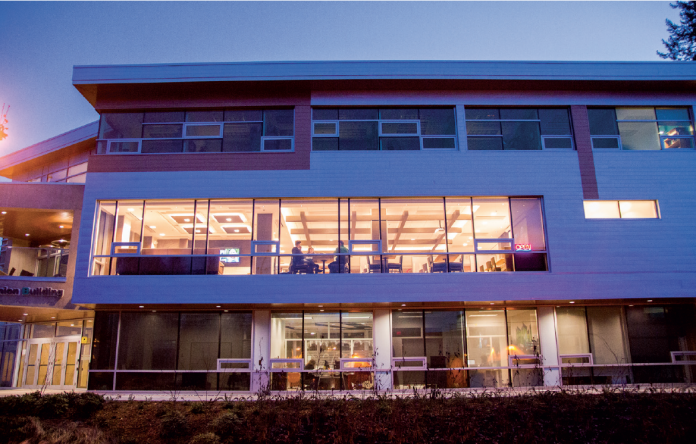In years past, the Student Union Society (SUS) has experimented with different structures and compositions of both its governance (board) and operations (officers). I can’t really speak to how those worked out, as in my time I’ve only known our current makeup, but it is important to note that changes aren’t unprecedented.
Regardless of what the positions are, I think it can be generally agreed that for the union to flourish the best positions need to be filled by the most engaged and qualified that are able. The first hurdle in making this happen is that so few students (relatively) on campus have the time and energy to be engaged, and fewer still have the time and energy to actively participate or work within the union. In my opinion, something that the 2017/18 team should look at is the benefits in terms of drawing in engaged members by expanding the opportunities to participate at the board level. Often we’ll try and look around at other student unions to see what they do, but while that can provide some insight and ideas, we have to look at what makes the most sense for our university.
Right now voting members of the board are chosen through faculty, school, or college, with additional seats given to UFV Senate and Board of Governors as well as an aboriginal student. Non-voting seats are given to The Cascade, CIVL, and an ex-officio. It’s incredibly important to give voice and power to programs that might have specific needs but lower student populations, however not all seats are consistently filled. Furthermore by limiting English, crim, geography, psychology, and other arts departments to just one seat, we lose out on a huge group of students who might be able to contribute. What I would suggest is either somehow integrating and evaluating the role of student associations, or better yet offering at-large board positions if others are vacant. I mean, it’s a good gig and great experience — you get priority registration for just a few hours of commitment a month — hopefully more opportunity might encourage diverse and energized voices to take part in our union’s governance.
The other area of consideration should be the role of officers and how those student positions are organized and offered. The issues we’ve seen in the past have been either insufficient training, unclear portfolios, or lack of support and independence in fulfilling their campaigns and responsibilities. None of this is a knock against anyone’s performance, but rather solutions I see to some unavoidable obstacles.
Clubs and associations depend on prompt feedback and response for funding requests so they can fulfill their mandates and engage with their members. However, anyone involved in that process can tell you that isn’t always the case, partly because it depends on a committee of volunteers being able to meet to approve requests. Perhaps they would be better served under a different system, with executives or officers holding the purse strings and the decision making happening in an open process, not hidden behind the non-disclosure agreement forms of the in-camera committees. The clubs and associations position on the other hand already functions as partly an engagement role when not approving paperwork.
Of course this comes with my biases of a union’s responsibility and mandate, but I would suggest most officer positions being moved under the advocacy and engagement umbrella, and working without specific portfolios but rather as support for the executives. Alternatively they could provide representation and oversight on academic appeals and disciplinary processes within UFV and its Senate committees, alongside student volunteer representatives.
You can easily, and probably should, disregard the specific recommendations I’ve made; but if you’re stepping up and paying attention you should be thinking about how even minor changes can have effects on the dynamics and capacity of the organization.


